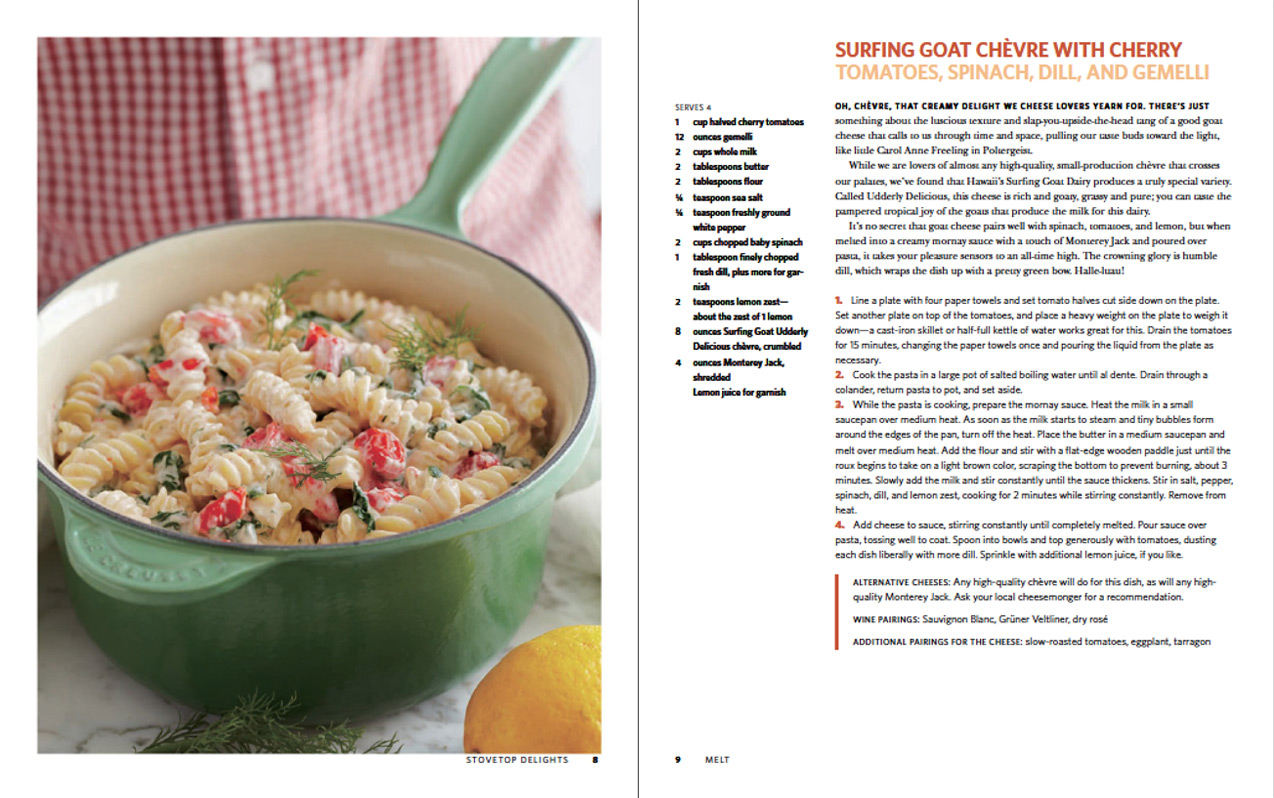Books are sacred. Think of how we react to book burnings. Think how hard it is to throw a book away. We build temples for them - there’s a library in almost every town. Many of us have more books in our houses than any other object, besides Lego. They might be the most spectacularly successful technology of all time.
A book’s contents might be great art. The book itself might be great art, too. A book may take years or decades to create—perhaps the work of dozens or hundreds of people beyond the author. It can be a monument you can hold in your hand.

 Page examples from MELT ebook.
Page examples from MELT ebook.Photographs by Matt Armendariz.
Text copyright © by Stephanie Stiavetti and Garrett McCord.
Book and jacket design by Gary Tooth/Empire Design Studio
The web can also be described as a spectacularly successful technology. Like books, browsers are everywhere. Unlike books, browsers don’t have a thousand years of history; many of us are older than the web.
Books in browsers have an even shorter history. Ebooks don’t have that aura of sacredness, and often don’t feel like art. But all of us are here today because we want more for books in browsers. We want them to be beautiful. We want to use our new-found digital powers to create great things.
We want books in browsers to be as beautiful as print, but flexible, accessible, adaptable, responsive.
At Paged Media, we have a vision for books in browsers, a vision that tries to learn from history, from the art and craft of print. We want them to be as beautiful as print, but flexible, accessible, adaptable. We want to be able to take a book and change the font or screen size, and have it automatically adjust to the new size, but still without widows and orphans and bad breaks. We want to be able to use ideas from the history of print, such as drop caps or footnotes or running heads, as well as links, popups, javascript, forms, and all the clever tools from the age of browsers.
Art forms advance, not by forgetting the past, but by building on it, re-imagining it.